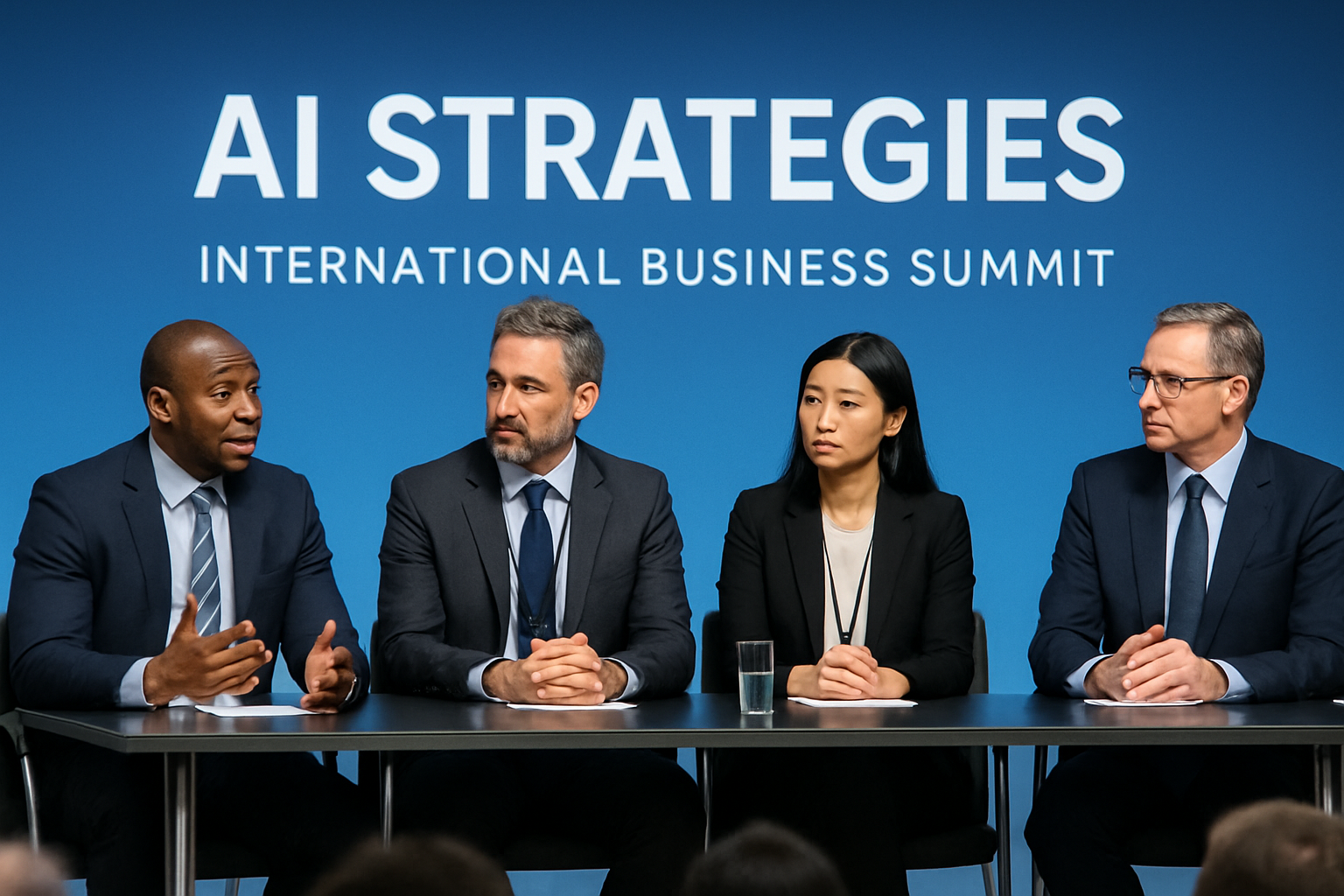Quick Take
- UN Development Programme calls for AI to enhance rather than replace human roles across businesses
- Global conference at University of Bradford (Sept 1-4) brings together AI policy experts from worldwide
- Human-centric AI approach offers competitive advantages in talent retention and market positioning
- Born in Bradford health study demonstrates scalable AI insights across 13,000+ pregnancies
- Framework provides businesses roadmap for sustainable growth while building social capital
The United Nations Development Programme’s Human Development Report 2025 is pushing businesses to deploy AI in ways that boost human capabilities rather than cut jobs, as global experts gather in Bradford to hash out implementation strategies. According to the UN report provides a framework, the report calls for AI to support and enhance human roles rather than replace them entirely.
This agenda takes center stage at the University of Bradford’s global conference from September 1 to 4, where world-class experts will debate AI’s business implications. The event marks a critical moment as corporations wrestle with ethical AI deployment while keeping their competitive edge.
“AI, if used wisely, can improve people’s lives,” the report states, urging governments and businesses to make choices that expand opportunities rather than eliminate them. This approach directly impacts how organizations structure their AI strategies and workforce planning.
Strategic Business Advantages Emerge from Human-First Approach
The UN report sends a clear message: smart AI adoption drives growth while cutting inequality. Companies that focus on human-centric AI implementation gain strategic advantages in talent retention, customer trust, and market positioning.
Businesses that embrace this approach gain several competitive advantages: enhanced employee engagement, improved customer loyalty, reduced regulatory risks, and access to ESG-focused investment capital. The timing proves crucial as businesses face mounting pressure to demonstrate responsible AI practices.
Companies following the UN’s human-first approach position themselves ahead of regulatory changes while building sustainable competitive moats in an increasingly scrutinized market environment.
Global AI Policy Leaders Converge in Bradford
The Human Development and Capability Association (HDCA) conference brings together researchers, policymakers, and business practitioners from around the world. Previously held in New York, Buenos Aires, and Tokyo, the event was founded in 2004 by Nobel Prize-winning economist Professor Amartya Sen and philosopher Professor Martha Nussbaum.
Professor Prathivadi Anand from the University of Bradford explains the strategic alignment: “As Bradford embraces its role as the UK City of Culture, this conference aligns with our core values. We are excited to be welcoming this global community of scholars to our University.”
Expert Insights Shape Market Implementation Strategies
Keynote speakers will examine critical business questions around inequality and market fairness. Professor Kunal Sen, Director of the United Nations University World Institute for Development Economics Research (UNU-WIDER), argues that inequality isn’t inevitable in economic growth but requires deliberate inclusive strategies.
Professor Francisco Ferreira from the London School of Economics will address “inherited inequality” and how background shapes opportunities. His insights offer business leaders frameworks for creating fairer hiring practices and market access strategies.
Professor Laura Valentini from Ludwig Maximilian University of Munich discusses personal sovereignty – people’s control over their data and interactions. This concept directly impacts how businesses handle customer data and AI-driven personalization.
Real-World Scaling Demonstrates Market Viability
The conference showcases Born in Bradford, a major health study tracking over 13,000 pregnancies. This project demonstrates how data-driven insights scale across markets – the model now operates in multiple UK cities through the BaBi (Born and Bred in) network.
This success story offers business leaders a blueprint for scaling AI-driven insights across different markets while maintaining local relevance and community trust.
Heriberto Tapia, Research & Strategic Partnership Advisor at Human Development Report Office, UNDP, emphasizes the business relevance: “Experts from around the world will reflect on what development means for people in times of profound change, including the increasing role of AI in our lives.”
Framework Provides Competitive Implementation Roadmap
The UN report stresses focusing on human needs and values, not just technological advancement. With proper policies, AI supports better education systems, healthcare delivery, and job market opportunities. These sectors present enormous business opportunities for companies that align with human-centric AI principles.
The conference theme “Culture, Peace and Capabilities” reflects broader market trends toward stakeholder capitalism and sustainable business practices. Companies integrating these principles into their AI strategies often outperform purely profit-focused competitors.
Strategic Actions for Business Leaders
Smart executives should study the UN’s human-first AI framework and assess current company practices against these principles. Organizations need clear policies ensuring AI enhances rather than replaces human decision-making in critical areas.
The Bradford conference demonstrates how academic research translates into business strategy. Companies should build stronger partnerships with research institutions to stay ahead of AI development trends and regulatory changes.
Businesses should also prepare for increased stakeholder scrutiny around AI ethics. The UN report provides a framework for communicating AI strategies in ways that build trust with customers, employees, and investors.
Global Market Implementation Strategies
The University of Bradford’s strategic priorities – growing research reputation and putting students first – mirror successful business approaches to AI adoption. Organizations that invest in human development while deploying advanced technology create sustainable competitive advantages.
This approach proves especially valuable in emerging markets where trust in technology remains fragile. Companies demonstrating commitment to human-centric AI often gain faster market acceptance and regulatory approval.
As AI transforms industries worldwide, the UN’s framework offers businesses a roadmap for growth that builds rather than erodes social capital. Companies following these principles position themselves for long-term success in an increasingly connected and scrutinized global economy.






